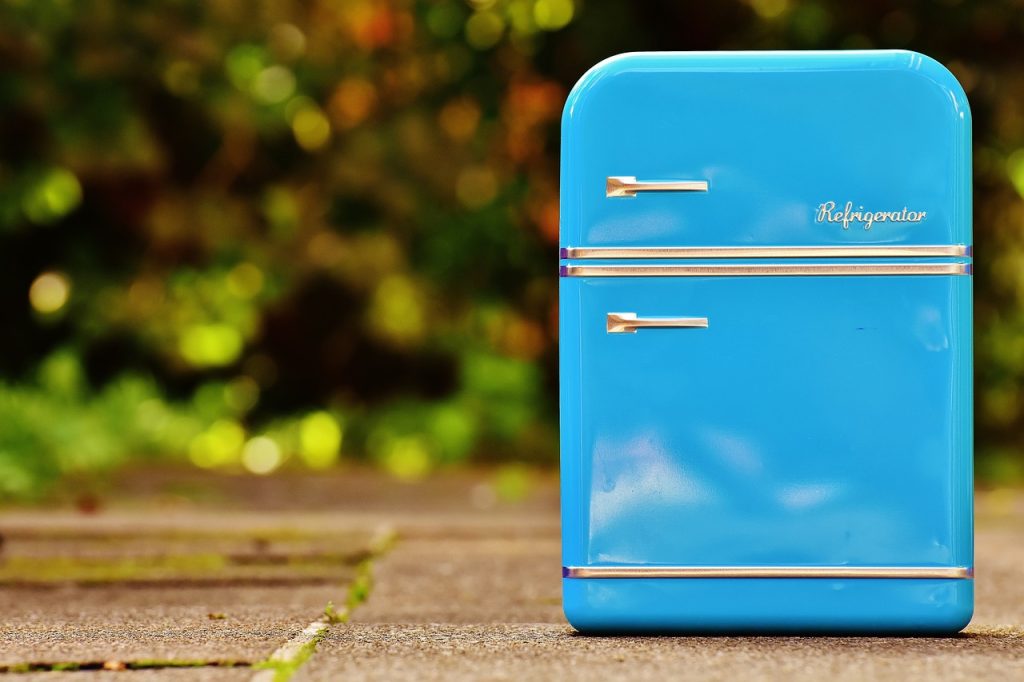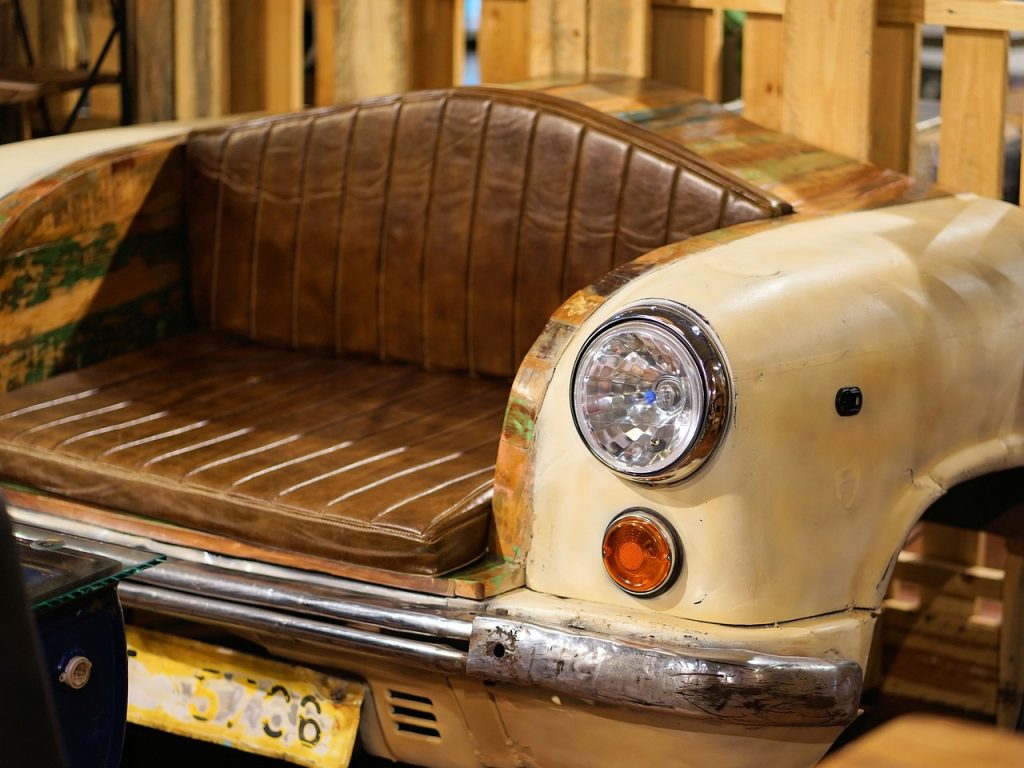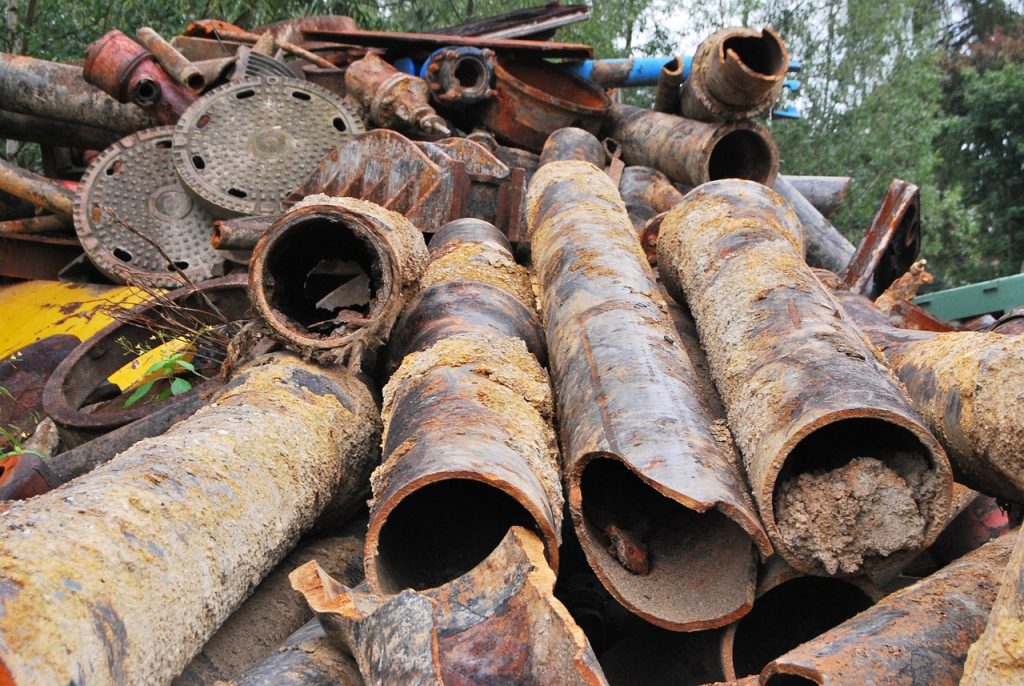- Recognize the hazardous components in a refrigerator, such as refrigerants, insulation materials, and toxic metals.
- Do not attempt to repair or dismantle the refrigerator yourself.
- Engage a professional service for appliance disposal, ensuring safe management of hazardous components.
- Consider using services with programs for responsible appliance disposal.
- Empty the refrigerator of any water and perishable items.
- Unplug the refrigerator and allow it to defrost.
- Schedule a pickup with a recycling service that adheres to proper guidelines.
- Ensure the service provider safely disposes of harmful components and recycles reusable materials.
Recognize Hazardous Components in a Refrigerator For Safe Appliance Disposal
When it comes to appliance disposal, particularly recycling a refrigerator, it’s vitally important to recognize the hazardous components first. Ensuring safety during this process is paramount, for both you and the environment. Refrigerators, like most appliances, have various parts that can pose safety threats if not handled carefully. To safely conduct a refrigerator’s disposal, you must have an in-depth knowledge about its hazardous components.
One of the primary hazardous components in a refrigerator are the refrigerants. Refrigerants are the substances used in the refrigeration cycle, which can be harmful if not disposed of correctly. Another potential hazard is found in the refrigerator’s insulation, which often contains toxic materials like asbestos or Fiberglas. Old refrigerators may also contain toxic metals in its electronic components such as lead, mercury, and cadmium.
In the face of these potential dangers, you might wonder about the correct method for appliance disposal. The best way to ensure a refrigerator is disposed of safely is to engage a professional service. Many qualified services offer reliable appliance disposal, ensuring that all hazardous components are safely managed.
One of the leading energy suppliers, even provides a recycling service for old refrigerators through RAD (Responsible Appliance Disposal) program. This is a great service if you’re seeking to responsibly get rid of your old refrigerator. They will pick up and recycle the refrigerator, safely handling and disposing of hazardous components. Through this service, you have the guarantee that the refrigerants and dangerous materials contained in your old refrigerator will be disposed of correctly, while you get paid a small bounty.
It’s worth noting that safety should always be given the utmost priority during the process of appliance disposal, especially when dealing with refrigerators due to the refrigerants contained within. Always remember not to attempt to repair or dismantle a refrigerator by yourself. Instead, seek the help of a service provider who has expertise in this area, one who puts your safety and the environment’s safety at the forefront while taking into account the energy saved from the proper disposal of your old refrigerator.
Appliance disposal might seem like a daunting task, but with a safety first mentality and help from professional services, it becomes an easier, safer, task. Remember, safe appliance disposal doesn’t only protect you but also contributes crucially to the conservation of energy and preservation of the environment.
Following Service Guidelines for Recycle Appliances: A Primer On Appliance Recycling
Recycling your refrigerator is a service you should consider. You may not immediately realize it, but it’s a fairly simple process that helps to safeguard the environment. The company providing the recycling service often follows certain guidelines to ensure safe and efficient appliance recycling. This article provides a comprehensive guide to help home dwellers understand the intricate details of refrigerator recycling and the services associated with it.
You can find many customer reviews stating the efficiency of the recycling companies. These reviews reflect the commitment of the companies in offering tailored services for recycling refrigerators. Professional companies often have established guidelines to render this service. These guidelines aid them in dealing with various components of refrigerators and freezers during recycling.
Don’t simply discard your old refrigerators. Understand that appliances such as refrigerators and freezers aren’t just common waste that should be thrown away. Instead, they are the house of a multitude of potentially hazardous components. Proper disposal or recycling of a refrigerator can protect your home from these hazards, preventing them from ending up in landfills. Recognizing these hazardous components emphasizes the need for professional appliance recycling service.
The cost for a refrigerator recycling service can vary based on different factors involving the company and the appliance itself. Some companies calculate the payment based on the size, condition, and location of the appliance. Residential homeowners can often avail of discounts and attractive deals from the recycling firms. An advance inquiry could help understand the cost and make appropriate arrangements to ensure smooth service.
Top companies follow regulations set by local and international authoritative bodies. They also leverage the latest technology to recycle appliances safely, leaving minimal imprints on the environment. Recycling refrigerators and freezers isn’t a process of mere dismantling, it involves careful extraction and processing of different components for their reuse in other equipment or safe disposal if they are hazardous.
Appliance recycling not only is environmentally responsible but also financially advantageous. Many times, companies offer incentives or rebates for recycling residential refrigerators in a bid to encourage more people to opt for recycling instead of disposal. So, while you are contributing to an eco-friendly initiative, you also get to save some money.
Before you choose a company for appliance recycling, evaluate them based on their credentials, customer reviews and your home’s requirements. Ensure that they adhere to all the service protocols for safe and effective recycling of refrigerators. You might need professional assistance to dissect and recycle appliances, but the benefits you enjoy in the long run, both in terms of economy and ecology, definitely make it worth it.
How to Dispose of Your Old Refrigerator Safely: The Need for Conscious Appliance Disposal
Learning how to dispose of an old refrigerator is an essential task for every homeowner. It’s not simply about getting rid of an unneeded appliance but doing it in a manner that respects the environment and everybody’s safety. Appliance disposal, particularly of large items like refrigerators, requires a mindful approach – be conscious of the fact that your choices have an impact.
Disposing of a refrigerator isn’t as simple as dragging it to the curb and forgetting about it. If done improperly, refrigerator disposal can pose a risk to safety. The refrigerator in your home contains various components that could be harmful if not handled correctly. For example, refrigerators that aren’t properly disposed of can release hydrofluorocarbons (HFCs), potent greenhouse gases that harm our environment. Hence, safety should be the first consideration when you’re trying to recycle or dispose of your appliance.
So, how can you ensure you dispose of your refrigerator properly and safely? Firstly, do not attempt to dismantle the refrigerator yourself. Professionals must handle this to ensure no harmful elements are released. If your home’s refrigerator uses freon, it needs to be drained professionally. This is an essential step in how to dispose of a refrigerator safely.
The role of recycling in appliance disposal can’t be overstated. To recycle a refrigerator, consider taking it to a recycling center that specializes in appliances. These facilities will know how to recycle your refrigerator, ensuring that as many components as possible are recycled rather than ending up in a landfill. The metals, plastics, and glass in your refrigerator can all be recycled, reducing the environmental impact of the appliance disposal.
Another way to recycle a refrigerator is to take advantage of retailer take-back programs. Sometimes, when you buy a new refrigerator, the retailer will offer to take your old one and ensure it’s recycled. This is a convenient way to dispose of your old refrigerator and knowing it’ll be recycled adds peace of mind.
Don’t forget about charitable organizations in your area, they may accept working appliances and give them to families in need. In some cases, local utilities offer refrigerator recycling programs, even offering incentives for recycling the appliance.
Learning how to dispose of a refrigerator properly may feel like a chore, but the benefits to your home and the environment make it worth it. It’s not just about clearing space in your home; it’s about reducing your environmental footprint. Conscious appliance disposal helps build a healthier and safer world for everyone.
Contribution of Recycling to Ozone Layer Protection
Recycling appliances like your refrigerator doesn’t just give that old, energy-hungry machine a new life, it also plays a significant part in preserving our planet, particularly in terms of ozone layer protection. When we recycle, we’re not only holding back from contributing to the ever-growing pile of waste in our community and beyond, we are also reducing the need for producing new goods. This, in turn, lowers the requirement for power to manufacture and transport these goods, leading to a reduction in harmful emissions that contribute to ozone depletion.
Now, let’s bring the focus back to refrigerator recycling. A fridge is no simple block of metal and plastic. It contains several components that, if not disposed of correctly, can be severely harmful to the environment. One key component is the refrigerant, a chemical compound that, if released into the atmosphere, can harm the ozone layer significantly. By opting to recycle your refrigerator at home, you are ensuring that these harmful substances are safely removed and disposed of by professionals in accordance with guidelines provided by epa gov.
The refrigerator recycling process consists of several steps. First and foremost, you need to clear out your refrigerator so it’s ready to be picked up for recycling. This might call for some help from your electric utility company. Many utilities nowadays offer a “pickup” service for large appliances set to be recycled. They might even provide a billing credit for your contribution to their recycling efforts.
Using the power of recycling, we can get that old refrigerator out of your home and into the arms of people who can extract valuable materials from it and properly dispose of the harmful ones. With the growing emphasis on energy efficiency, many of the materials salvaged from your old fridge could go into producing new, more efficient appliances.
At the end of the day, it’s incredibly important to recycle and take these conscious actions to dispose of our appliances safely. It’s not just about keeping our homes clean and decluttered, it’s about recognizing that we all play a part in our global community’s environmental health. By understanding the contribution of recycling to ozone layer protection, we can all do our bit to protect our planet and make a positive change for a healthier and more sustainable future. So don’t just dispose of your old refrigerator, recycle it the right way. Not only will you be assisting in the fight against ozone depletion and promoting energy efficiency, you’re helping set a standard in your community that values the well-being of our planet.
Steps to Recycle Your Fridge: How Recycling Your Refrigerator Can Make a Difference
Recycling your fridge doesn’t just alleviate your burden; it can make a significant difference to the environment. It’s not just about getting rid of an appliance; it’s about doing it responsibly and effectively recycling it. When you recycle appliances, they’re decomposed into reusable materials, reducing the need for raw materials and the energy usage involved in production. This isn’t simply a service performed by companies; it’s an active contribution to global efforts to conserve energy and protect the earth from destructive practices.
So, how exactly do you go about recycling a refrigerator? There are a few crucial steps to follow, and several interesting facts about fridge recycling to consider. First off, it’s important to dispose of any water from the appliance. Empty the ice cube trays and remove any perishable items. Next, you’ll want to unplug the refrigerator for an extended period, enabling the fridge to defrost properly.
Once this process is completed, it’s time to schedule a pickup for your recycling service. Many services are available, some even online, making this step easier for you. These services will help you dispose of your appliance, following set guidelines to ensure that your refrigerator is recycled properly. It’s worth noting that there may also be energy assistance available in certain circumstances. For those facing an emergency, there are services that offer pickups and assist in the safe disposal of the fridge.
You might wonder why so much emphasis is placed on the right way to recycle a fridge. Why all this talk about guidelines for fridge disposal, energy usage, and rad refrigeration practices? One word: Environment. The way you dispose of your refrigerator can have a significant impact on the environment. An improperly disposed fridge can release harmful chemicals into the atmosphere, but a properly recycled refrigerator does not contribute to this. Furthermore, recycling your fridge instead of sending it to a landfill reduces solid waste and results in reduced energy usage in the long run.
Your old refrigerator, therefore, isn’t simply waste. It’s an asset for recycling that can be tapped into. You’re not just disposing of it, you’re making the environmentally-conscious decision to recycle it. This minor change in perception, echoed by millions of people, can make a significant difference. Proper refrigerator disposal helps to protect the ozone layer, assists in energy conservation, and propagates better and healthier practices. So the next time you’ve got an old, worn-out fridge, remember that taking the proper steps to recycle appliances like your refrigerator isn’t just sensible-it’s also responsible.




